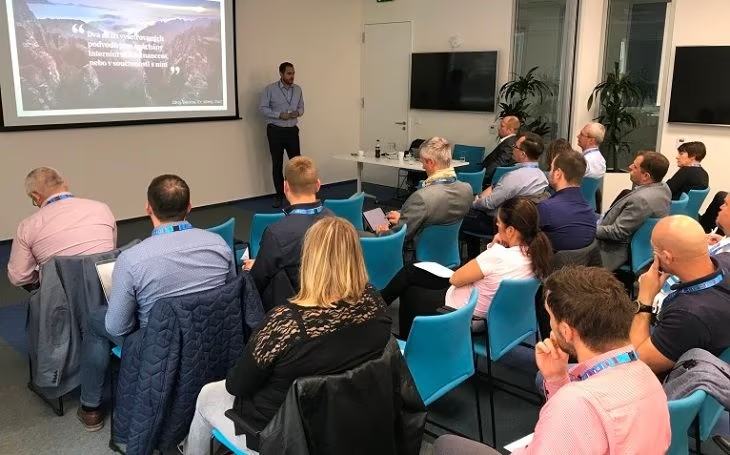Michal Moroz, Chief Business Development Manager at SECURITAS, one of the presenters at the seminar, comments that **There is a prevailing misconception that the biggest security threats come from outside and companies adjust their security management accordingly. However, available statistics clearly show that two out of three investigated frauds are caused by employees or are directly involved with them. **Companies can face internal crime with well-designed compliance processes, which serve as prevention not only against criminal offenses, which are always painful for companies, but also against unethical behavior in general.
Profile of a Corporate Thief
Another presenter, Petr Moroz from Screening Solutions, recalled psychological studies that divide society into three groups based on character: roughly 25% are people with a strong tendency towards unethical behavior and fraud whenever possible, 25% are always honest under any circumstances, and the remaining half adapt their behavior based on their life situation, established rules, and opportunities. "You don't want employees from the first group in your company at all. Therefore, it is crucial to verify the honesty of future colleagues at the moment when they apply for a job, for example, by using references or checking the truthfulness of their resume. Today, this can be easily achieved and, thanks to electronic tools, also cheaply and quickly. With the majority of people who are characteristically undefined, companies can work with well-designed compliance processes and effective risk management." According to surveys, the typical perpetrator of a crime in the workplace is a man between the ages of 35-55 who has been with the company for 6 or more years. One-third of them are people in executive and managerial positions, and in two-thirds of cases, they collaborate with someone else as an organized group.
Whistleblowers in the Czech Republic currently without protection
In contrast to Slovakia and other European countries, the Czech Republic currently lacks legal protection for so-called whistleblowers. However, statistics from ACFE, which collects information on cases of corruption and fraud in Eastern Europe, show that 40% of criminal cases were first detected with the help of a tip from someone, with internal audits ranking second at 20%. Therefore, companies should have internal rules for reporting offenses (whistleblowing), which allow for immediate and discreet detection and resolution of incidents.
In addition to physical and technical security, SECURITAS CR also provides security consulting, security audits, and compliance process setup. Another workshop following up on the topic of internal crime is scheduled for November.




